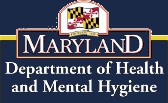Supporting Innovative Health and Sustainable Programs in Maryland
The Maryland Community Health Resources Commission supports a number of programs that promote safety net providers and expand access in underserved communities throughout the state. Below is a brief overview of projects that the Commission supports:
Patient Centered Medical Homes
Hospital-Based Domestic Violence Screening and Referral Program
Task Force on Regulatory Efficiency
Patient Centered Medical Homes
In partnership with the Maryland Health Care Commission (MHCC), the CHRC is helping to support the Patient Centered Medical Home Program (PCMH) that is currently being implemented across the state. In April 2010, Governor O’Malley signed HB 929/SB 855 that established the PCMH program, as this model has been proven to increase provider and patient satisfaction and achieve cost reductions via reduced emergency department (ED) visits and inpatient admissions.
Under the PCMH legislation, the CHRC is authorized to assist federally qualified health centers and other primary care practices to become PCMHs and to identify ways that its resources can leverage additional assets to support the participation of those practices in the program. The Commission provides resources to support the transformation component of the program, which provides technical assistance to practices participating in the program.
In April 2012, Lt. Governor Anthony G. Brown announced that all 52 providers participating in the PCMH initiative have achieved Patient Centered Medical Home (PCMH) Recognition from the National Committee for Quality Assurance (NCQA).
Hospital-Based Domestic Violence Screening and Referral Program
The CHRC is supporting the Administration’s Domestic Violence Health Care Screening and Response Initiative by providing grant funding to the Prince George’s Hospital Center. This grant leverages additional funds provided by the Governor’s Office of Crime Control and Prevention (GOCCP) and private sector contributions to support a hospital-based domestic violence screening program. Evidence shows that these types of programs will help break the cycle of domestic violence, reduce ED visits and hospital admissions, and improve health outcomes for victims of domestic violence.
Governor’s Family Violence Council – Hospital-Based Domestic Violence Programs, February 2010
Prince George's Hospital starts domestic violence program, The Montgomery Gazette
State Health Improvement Plan
The State Health Improvement Plan (SHIP) was launched by the Department of Health and Mental Hygiene in September 2011. The goal of the SHIP is to provide a framework for accountability, local action and public engagement to make progress in Maryland’s health. The SHIP has 39 measurable objectives across six vision areas that are targeted for improvement.
These six vision areas are:
- Healthy Babies
- Healthy Social Environments
- Safe Physical Environments
- Infectious Disease
- Chronic Disease
- Health Care Access
In February 2012, the CHRC issued a targeted Call for Proposals to support local action strategies to improve overall health in communities and advance the goals of the State Health Improvement Process. In April, the CHRC announced 17 grant awards, totaling $600,000 to local health coalitions to begin implementation of priority strategies of each coalition’s local health action plans. Following are examples of the types of activities that CHRC LHIC grant funding supports:
- Implementing an obesity prevention program that engages local businesses, churches, and other community-based organizations to help engage residents in nutritional education and physical activity;
- Developing care coordination teams that connect high-risk patients to multiple agencies and services such as health screenings, health coaching, prevention and disease management, and behavior health services; and
- Providing education and resources to an array of providers to help prevent prescription drug abuse and implementing a community based system of safe pharmaceutical drug disposal.
Task Force on Regulatory Efficiency
The Maryland Department of Health and Mental Hygiene established an internal Task Force on Regulatory Efficiency to conduct a cross-agency review of DHMH facility regulations to promote greater transparency, efficiency, and effectiveness. The Task Force is co-chaired by Patrick Dooley, Chief of Staff at DHMH, and Mark Luckner, Executive Director, Community Health Resources Commission (CHRC). Six operating divisions of DHMH will have a representative on the Task Force.
The purpose of the Task Force is to recommend adjustments to existing regulations that will make the Department’s oversight of facilities and programs more effective and efficient. The Task Force issued its Interim Report in July, 2011 which provided draft, initial responses to the 72 proposals received from the public for regulatory change.
The Task Force issued its Final Report in May 2012 on which proposals the Department intends to implement. Proposals to be implemented by the Department must also go through the formal regulatory process, including formal public comment, before taking effect.



